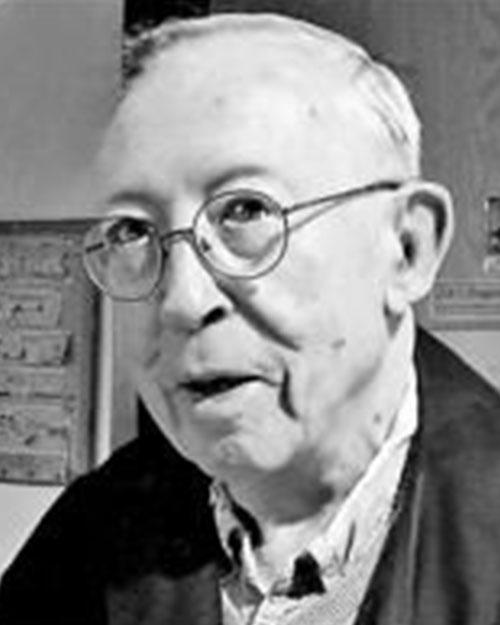Faculty to Remember: George Leger, Professor Emeritus

George Leger passed away in January 2019. During his 40 years of service at Tufts, Professor Leger had a profound influence on the development of the Mathematics faculty, and through it on the achievement of that unique balance of teaching and scholarship which characterizes our institution today. When George decided to step down as Department Chair, President Jean Mayer wrote "You have done a splendid job in building a strong mathematics department...The University and I in particular are extraordinarily grateful to you for your dedication and your judgment."
George Leger completed his BS in 1945 at the University of Pittsburgh and his graduate work (MS, 1948, PhD, 1951) at the University of Illinois. Leger's PhD thesis, under the direction of Gerhard Hochschild, was entitled "On the Cohomology of Lie Algebras"; the major results were obtained independently by Koszul. He began his professional career as supervisor of the Applied Mathematics section at Bell Aircraft, then held faculty positions at Syracuse University, the University of Pittsburgh, and Western Reserve University, as well as a Research Fellowship at Harvard University, before coming to Tufts in 1963. He was promoted to Professor in 1965, named the Robinson Professor of Mathematics in 1974 and retired in 2004. Most of Leger's 21 papers were published in highly prestigious mathematics journals, and study the structure of Lie algebras by means of operators called derivations and algebraic objects called cohomology groups. His results have, in particular, contributed in a significant way to our current understanding of Lie algebras. Two unusual items in his bibliography are a 1975 article (in French) in the Comptes Rendus of the Academy of Sciences, Paris and a 1985 paper with Andrew Plaut (in biochemical English) in the journal Molecular Immunology. Also of note is his long and productive collaboration on Lie theory with Eugene M. Luks, professor of computer science at the University of Oregon.